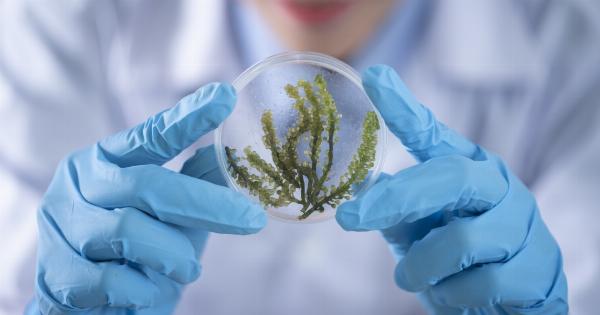Menopause is a natural process that every woman goes through as she ages. It marks the end of a woman’s reproductive years and typically occurs between the ages of 45 and 55.
During this transition, hormonal changes, including a decrease in estrogen and progesterone levels, can have a significant impact on a woman’s overall well-being, including her sexual desire and enjoyment.
1. The Role of Hormones in Sexual Desire
Estrogen and progesterone play vital roles in a woman’s sexual health and desire by regulating the menstrual cycle and affecting vaginal lubrication, blood flow, and overall sensation.
As menopause approaches, the ovaries produce less estrogen and progesterone, leading to various physical and emotional changes, including a decline in sexual desire.
2. Physical Changes Affecting Sexual Desire
Aside from hormonal fluctuations, menopause brings about physical changes that can affect sexual desire. Vaginal dryness, for example, can cause discomfort and pain during sex, making it less appealing.
Additionally, changes in blood flow to the pelvic region can alter the sensitivity of erogenous zones, making arousal and orgasm more challenging to achieve.
3. Emotional and Psychological Factors
Menopause is often accompanied by emotional and psychological changes that can also impact sexual desire. Many women experience mood swings, anxiety, or depression during this time, which can affect their overall interest in sex.
Moreover, body image issues and concerns about aging can further contribute to a decrease in sexual desire.
4. Relationship Dynamics
Relationship dynamics play a crucial role in a woman’s sexual desire, especially during menopause. A lack of effective communication, unresolved conflicts, or emotional distance can all contribute to a decline in sexual interest.
Supportive partners who understand and adapt to the changes can help maintain intimacy and desire.
5. Fatigue and Sleep Disturbances
Menopause can bring about sleep disturbances, such as insomnia, night sweats, or hot flashes, leading to fatigue and exhaustion.
Lack of quality sleep can significantly impact energy levels and overall well-being, making sex less of a priority or even undesirable.
6. Treatment Options for Decreased Sexual Desire
While decreased sexual desire during menopause is common, it doesn’t mean that women have to accept it as a permanent condition. Consulting with a healthcare professional can help explore various treatment options, including:.
–Hormone Replacement Therapy (HRT): This involves replacing the declining estrogen and progesterone levels with synthetic hormones. HRT can help alleviate symptoms like vaginal dryness and improve overall sexual desire.
–
Lifestyle Modifications: Simple lifestyle changes like regular exercise, a healthy diet, stress management, and quality sleep can significantly improve sexual desire and overall well-being.
–Sexual Therapy: Speaking with a qualified therapist or counselor who specializes in sexual health can help address any emotional or psychological factors impacting sexual desire.
They can also provide guidance on enhancing communication and intimacy within relationships.
–Prescription Medications: Certain medications, such as selective serotonin reuptake inhibitors (SSRIs), can be prescribed off-label to boost sexual desire in menopausal women.
However, the use of medications should be discussed with a healthcare professional to evaluate potential risks and benefits.
7. Communication and Intimacy
Open communication between partners is key to maintaining intimacy and a healthy sexual relationship during menopause.
Expressing concerns, desires, and exploring new ways of being intimate can help overcome challenges and foster a fulfilling sexual connection.
8. Self-Care and Exploration
During menopause, it is crucial for women to prioritize self-care and explore what brings them pleasure.
Engaging in activities that promote self-confidence, such as exercise, mindfulness, and hobbies, can positively impact overall well-being and sexual desire. Additionally, experimenting with new techniques, toys, or lubricants can enhance sexual pleasure.
9. Seeking Professional Support
If menopausal symptoms, including decreased sexual desire, significantly impact quality of life, seeking support from healthcare professionals is essential.
Doctors, gynecologists, or sexual health specialists can provide personalized guidance, recommend suitable treatment options, and address any specific concerns or questions.
10. Embracing the Journey
Menopause is a transition that every woman experiences differently. It’s important to remember that a fluctuation in sexual desire is a normal part of this process.
By understanding the physical and emotional changes associated with menopause and exploring available treatment options, women can continue to embrace their sexuality and enjoy fulfilling intimate relationships as they navigate this new chapter of life.




























